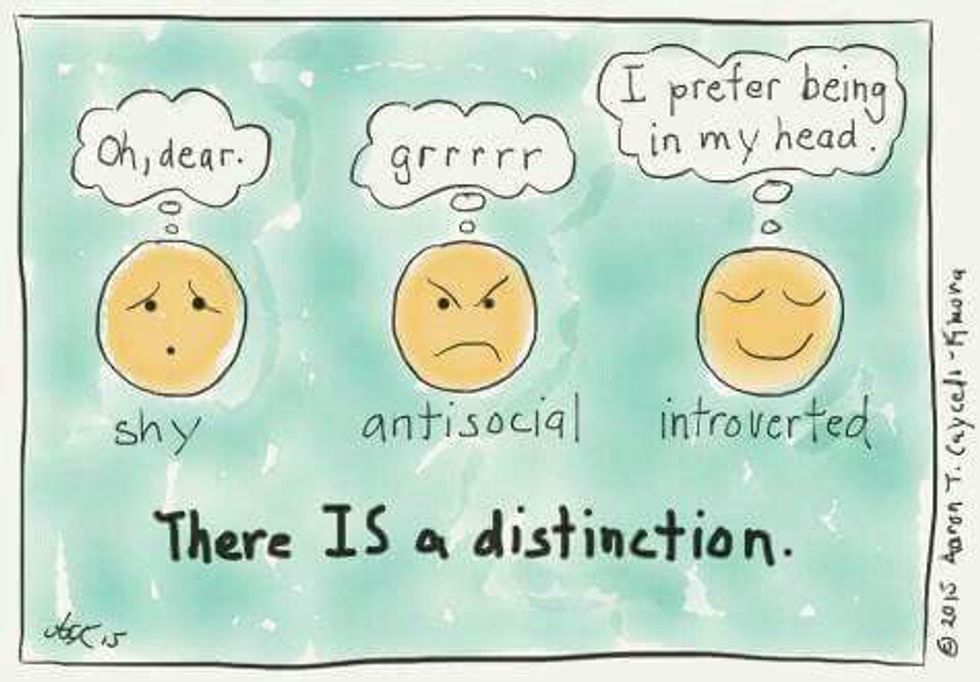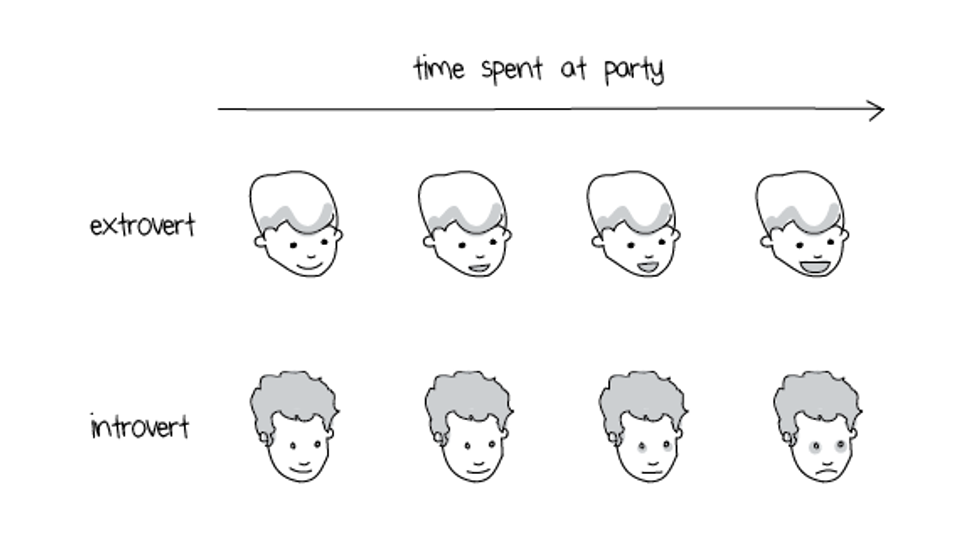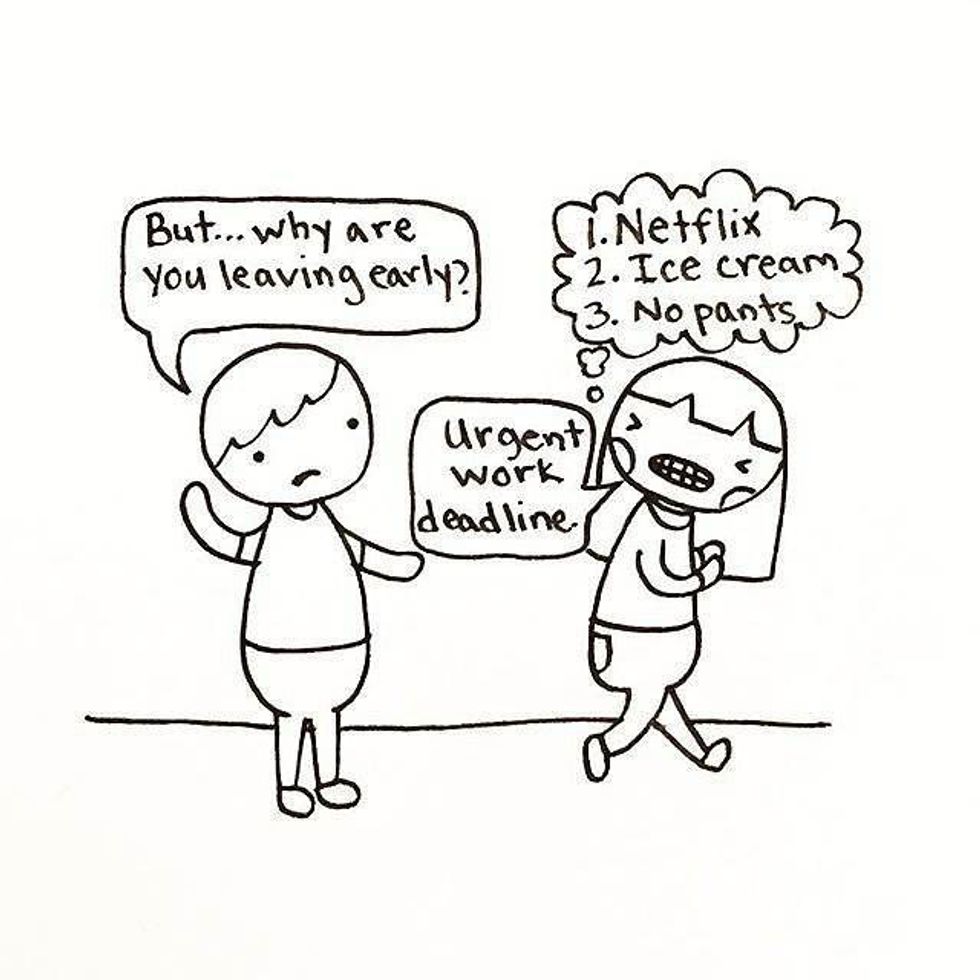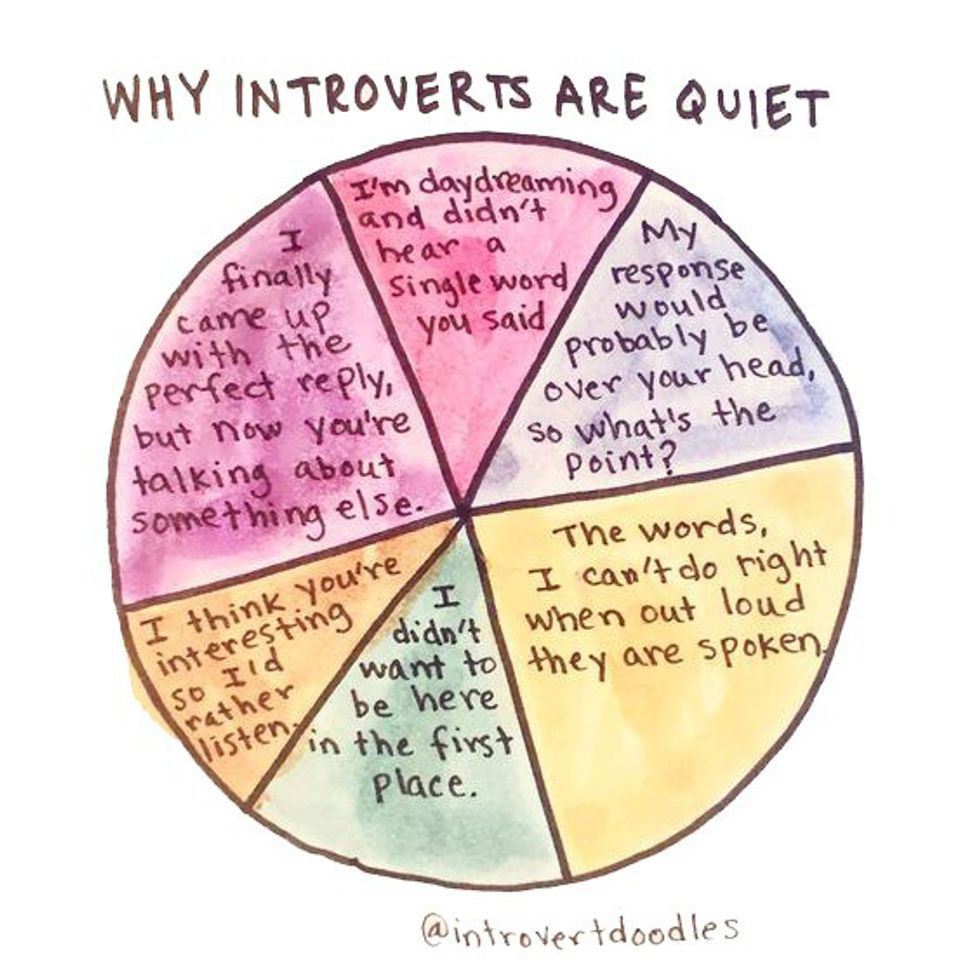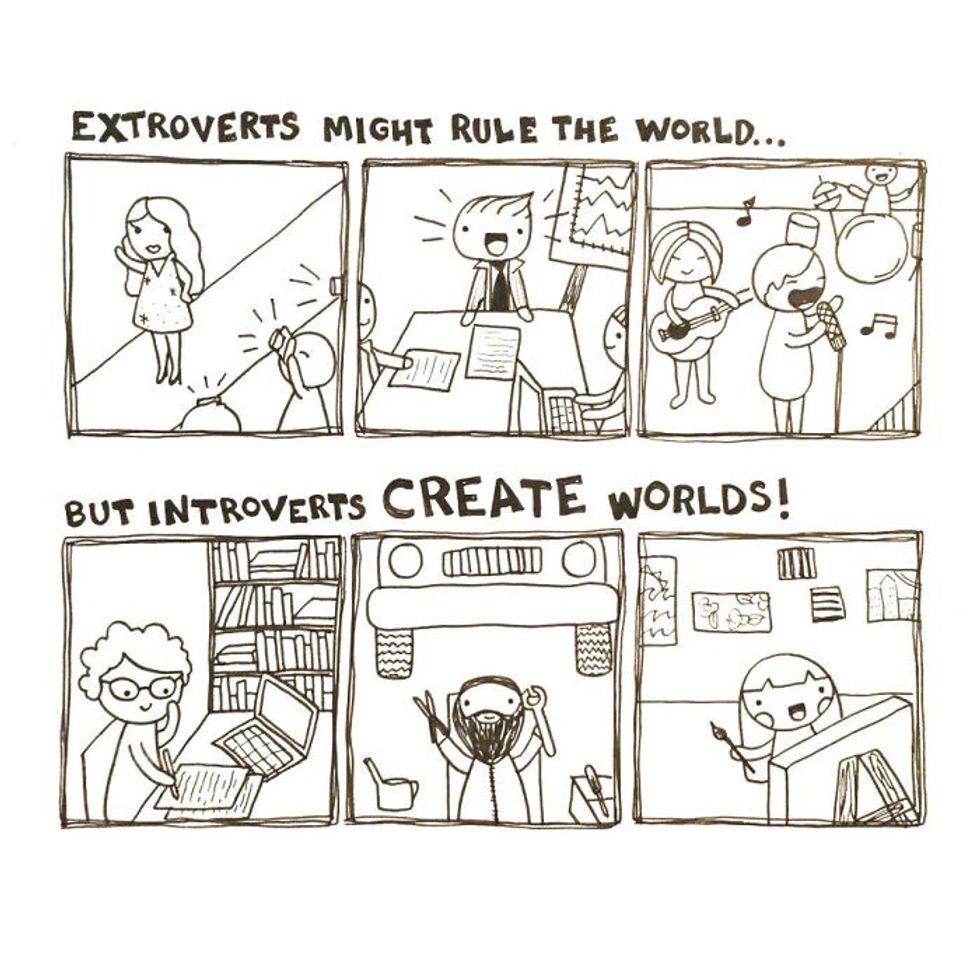Despite affecting approximately one-third of the general population, introversion may be one of the most frequently misunderstood personality traits. If common stereotypes are accurate, introverts are socially awkward loners who abhor large crowds, are often aloof and avoid social interactions as much as they can. These are among the many misconceptions that people have about introverts—but they are not quite true. We introverts often feel misunderstood by a predominantly-extroverted world, so here are some things we wish our extroverted friends and family would know:
1. Not all of us are “shy” or “antisocial.”
Shyness is so often confused with introversion that the two words are frequently used interchangeably, but the truth is that “shy” and “introverted” are actually two different things (some of us are both, though, and that’s okay). Being an introvert doesn’t necessarily mean that we don’t like meeting new people or that we’re afraid of social interaction.
Recommended for you
2. We don't hate a good party.
Just because we often enjoy a chill night in doesn’t mean we don’t like to go out, or that we're a bunch of killjoys who don't know how to have a good time. In fact, some of us enjoy a loud, crowded party as much as any extrovert -- just as long as we get to spend time alone at home afterwards to recharge. Which leads me to...
3. We often need time alone to recharge...
This is the key difference between the introverts and the extroverts of the world: while extroverts gain energy by spending time with other people and having many social interactions, introverts lose their energy from being around people for large periods of time and being in an overstimulating environment—which is why we often need to recharge our energy by spending time alone.
4. ...But it doesn’t mean we don’t love hanging out with you.
Sometimes we’ll say “No, thank you” to a plan or opt to stay in rather than hang out. When this happens, we want our extrovert friends to understand that we do enjoy spending time with you—it’s just that social interactions drain a lot of energy out of us, and we just need some time alone to recharge our batteries so that we'll be ready to socialize and have fun with you the next time we make plans.
5. We express ourselves a lot better through writing rather than speaking.
A lot of us prefer to write out what we mean rather than explain ourselves through speaking—and we have a good reason for it. Writing allows us the ample time and reflection to edit our words and express exactly what we mean, whereas coming up with the right words on the spot in a conversation can often be hard for us. (That’s why we may prefer texting instead of a phone call and journaling our feelings instead of venting them out in conversations.)
6. We make just as good leaders or public speakers as extroverts do.
Just because we’re introverted doesn’t mean we can’t have exceptional leadership and public speaking skills. In fact, many introverts enjoy and even excel in roles that involve leading others and being in the spotlight, and research actually shows that the unique qualities of introverts contribute to great leadership. (Just look at Bill Gates, Abraham Lincoln, or Gandhi!)
7. We don’t mind doing things alone.
We often don’t understand the social stigma against being alone and doing things by ourselves. Although we get that some people enjoy always being in the company of others, sometimes the only company we need or want is ourselves—and we wish that other people would understand that we’re perfectly okay with eating by ourselves or going shopping alone (in fact, sometimes we prefer it).
8. We like to think before we talk.
Sometimes we may seem really quiet or untalkative in conversations, but it’s only because we’re processing and reflecting on what you said. Don’t mistake our silences for being bad conversationalists; introverts can add a lot of meaningful thoughts to the conversation—it’s just that we need some time to carefully go through our thought processes, and that we're often super selective about what we say aloud.
9. Sometimes we just take a while to open up to people.
Because the world we live in is so internally-oriented, our external selves may come off as extremely distant to other people—and we may often be written off as unfriendly, arrogant, or aloof. But we're not unfriendly or cold; it's just that some of us have a difficult time opening up to others, especially new people we just met. We don't necessarily like to share the richest, deepest parts of our personality with the outside world. It takes time and trust for us to open up to someone—but when we do, it's almost always rewarding.
10. We can’t “break out of our shell” to become extroverts.
When people suggest ways to “break out of our shells” or say that we can become into extroverts if we really try, it suggests that there is something wrong with us—when there really isn’t. Introversion isn’t a defect or a flaw; it’s part of who we are, and trust us—we have a lot to bring to the table.




